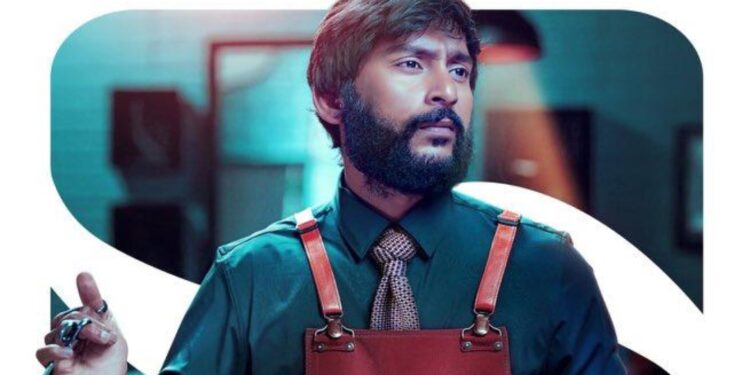In the charming village of dreams, where aspirations weave through the strands of everyday life, Gokul’s “Singapore Saloon” takes us on a whimsical journey with a young boy, Kathir. Inspired by the artistry of Chacha, the local barber, Kathir dreams of becoming a hairstylist, his imagination soaring as high as the hair he hopes to sculpt. The movie, a delightful blend of humor and heart, captures the essence of chasing dreams in the face of life’s unpredictable challenges.
Gokul, known for his distinctive comic sensibility, opens the film with a riotous pre-interval stretch. Sathyaraj, in an unabashedly caricaturish role, forges comedy gold with the help of absurdist writing. The result is a laugh-out-loud extravaganza that sets the tone for the film. As January unfolds, “Singapore Saloon” emerges as a strong contender for the funniest comic moment of the year, leaving audiences in splits with its infectious humor.
However, the director chooses to navigate a different terrain in the second half, steering the narrative towards melodrama. This shift feels like a cinematic detour, and the heavy-handed messaging contrasts sharply with the lightness of the film’s earlier portions. Kathir, played with subtlety by RJ Balaji, finds himself on a path fraught with challenges as he strives to become a hairstylist against all odds. The character’s depth is somewhat hindered by shallow characterization, limiting Balaji’s ability to elevate it beyond its surface.
The film takes an unexpected turn when Kathir’s fortune changes with a makeover mission for a group of boys from the slum. Unfortunately, the film doesn’t delve into the artistry of hairstyling, leaving the transformation feeling too convenient and disconnected. The boys’ new looks appear more as a result of their costumes than Kathir’s hairstyling skills, missing an opportunity to showcase the protagonist’s journey in a more tangible and relatable manner.
Gokul’s attempt at injecting magical realism into the narrative, featuring a surprise cameo and a flock of parrots, adds an intriguing layer to the story. The director successfully gives a fresh spin to familiar scenarios, including Kathir’s practical and supportive dad, the unexpectedly agreeable father-in-law (played by Sathyaraj), and a rival who transforms into an ally. These creative twists, coupled with moments of genuine humor, prevent the movie from turning into a bad hair day for the audience.
Thalaivasal Vijay delivers a likeable performance as Kathir’s pragmatic father, contributing to the film’s positive vibes. Lal, in the role of Chacha, adds dignity to the character, becoming a beacon of inspiration for Kathir. The film also explores relationships in unexpected ways, breaking free from conventional tropes.
In conclusion, “Singapore Saloon” is a rollercoaster ride through dreams and hairstyles, filled with laughter, unexpected twists, and a touch of magic. While the shift from comedy to melodrama may be jarring, the film’s fresh spins on familiar elements and the engaging humor ensure that the audience’s experience remains a pleasant one. Gokul’s directorial finesse, coupled with the endearing performances of the cast, makes “Singapore Saloon” a memorable cinematic journey worth taking.









